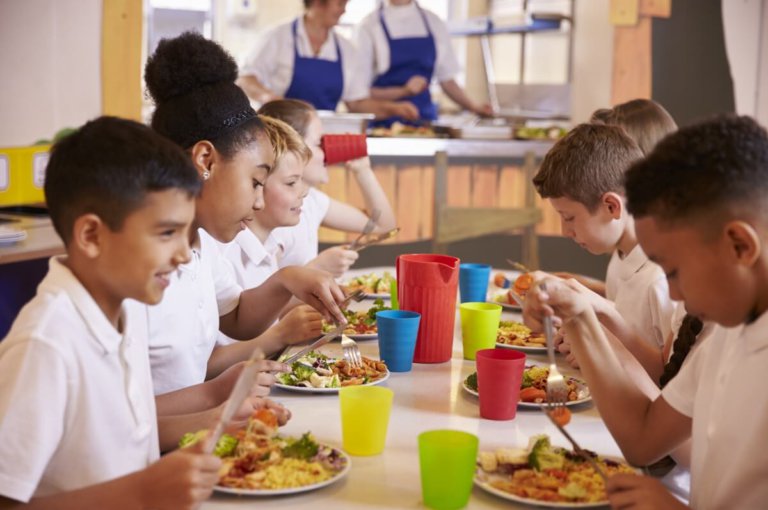
A necessary part of every school student’s day, healthy and nutritious meals are a must for proactive minds.
Aligning with the UK Government’s healthy standards for school food, in England, many schools aim to supply high-quality meat, poultry or oily fish, fruit and vegetables, bread, cereals and potatoes to their pupils.
By banning drinks with added sugar, crisps, chocolate and sweets in school lunches and vending machines, the standards set up by the UK Government are motivational pinpoints to produce healthy meals for hungry learners.
And with National School Meals Week (NSMW) fast approaching in November in the UK, ‘School Meal Heroes’ are being celebrated far and wide for their commitment to different sectors of the education catering industry.
Dedicated to giving school children a healthy, nutritious and tasty daily meal, there are various pieces to the food production puzzle.
For instance, Head Chef at Park Community School, Hampshire, and current School Chef of the Year 2019, Steven Cross was labelled a hero for his fresh, seasonal, exciting food for 450–500 students a day.
“Students’ eating habits have massively changed over the years and this is due to them having so [many options on] their front doorstep. Every high street restaurant, takeaway, fast food joint and corner shop [is] trying to capture our students’ money and this is just on their walk to school.
“We have adapted our menus so they are healthy, nutritious but fun to eat, introducing challenging options for dinners to taste, sample or even choose daily,” Cross confesses.
But before November, there could be a detrimental disruption to the UK education catering industry.

What could a no-deal Brexit do to UK students’ nutrition? Source: Dan Gold/Unsplash
Will it be a no-deal for nutritious school meals?
Recently, the UK Education minister Lord Agnew, urged schools, councils and academy chains to contact suppliers to ensure they will be able to continue providing food if Britain leaves the EU on October 31 without a withdrawal agreement in place.
Expecting answers back by next week, schools across the country are now researching their school meal structures to see if the upkeep of students’ nutrition is possible considering a no-deal Brexit.
In response to this news, a Department for Education spokesperson highlighted that “This Government is working hard to get a deal but we must be prepared to leave the EU on October 31, whatever the circumstances,” and that the DfE in the UK “has already made extensive EU exit preparations, including providing guidance for schools and councils to help them ensure a smooth transition. We continue to work with our stakeholders to make sure they are aware of what they need to do and are as best prepared as they can be.”
Exclusive: Schools minister Lord Agnew has sent a letter to councils and schools demanding a ‘clearer understanding’ of their supplies of food and medicine https://t.co/2HSbpr8Lcd
— Tes (@tes) September 18, 2019
Cutting ties with the EU could mean cutting off a large amount of fresh produce that’s delivered to the UK from Europe.
As educators already know, uncertain times lay ahead, yet planning is crucial to both lesson structures and school meal plans.
By answering the questions that Lord Agnew has passed out and maintaining a strong grip on students’ health and welfare, a deeper analysis is required and a backup plan created in case of upcoming disruption.
But will a no-deal Brexit mean a no-deal to nutritious meals for schools across the UK?







